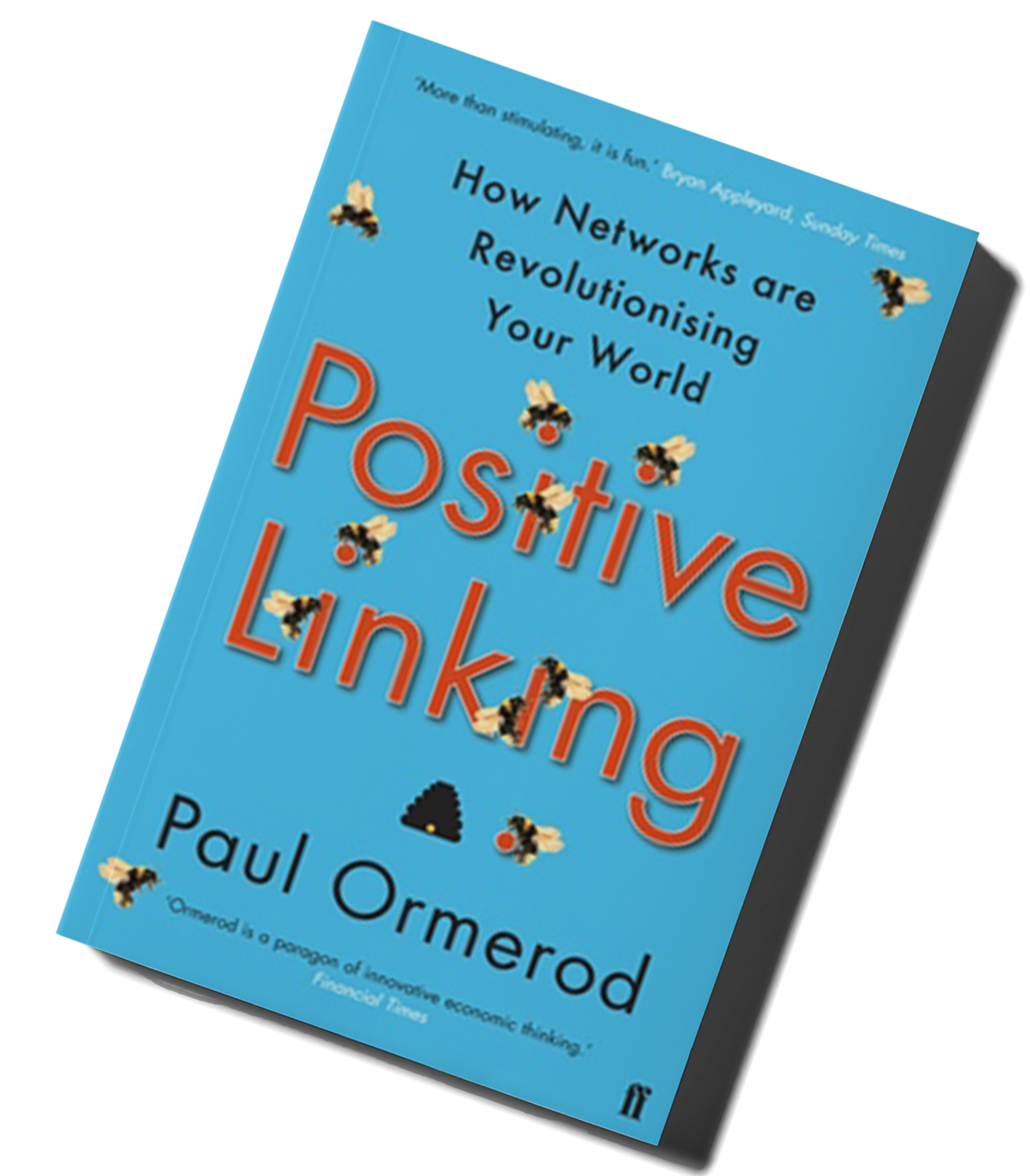
Paul Ormerod
Economist, Author, Entrepreneur
I am an Honorary Professor in the Alliance Business School at the University of Manchester. I was previously a Visiting Professor in the Department of Computer Science at University College, London (UCL).
I was recently elected as a Fellow of the Royal Economic Society. I was elected as a Fellow of the British Academy for the Social Sciences in 2006 and in 2009 I was awarded an honorary Doctor of Science degree by the University of Durham for the ‘distinction of his contributions to the discipline of economics’.
I write a weekly opinion column on economics and related topics for City AM, a newspaper aimed at workers in Central London.
Since May 2020 I have been Chairman of the Rochdale Development Agency (RDA). The RDA is the company responsible for economic development in the Metropolitan Borough of Rochdale, which is in Greater Manchester. The RDA is a non-profit company owned by Rochdale Borough Council.
In September 2022 I was appointed by the Mayor of Greater Manchester, Andy Burnham, to chair the Atom Valley Greater Manchester Mayoral Development Zone
You can follow me on Instagram @profpaulormerod
“Ormerod is a paragon of innovative economic thinking”
FINANCIAL TIMES
My Books
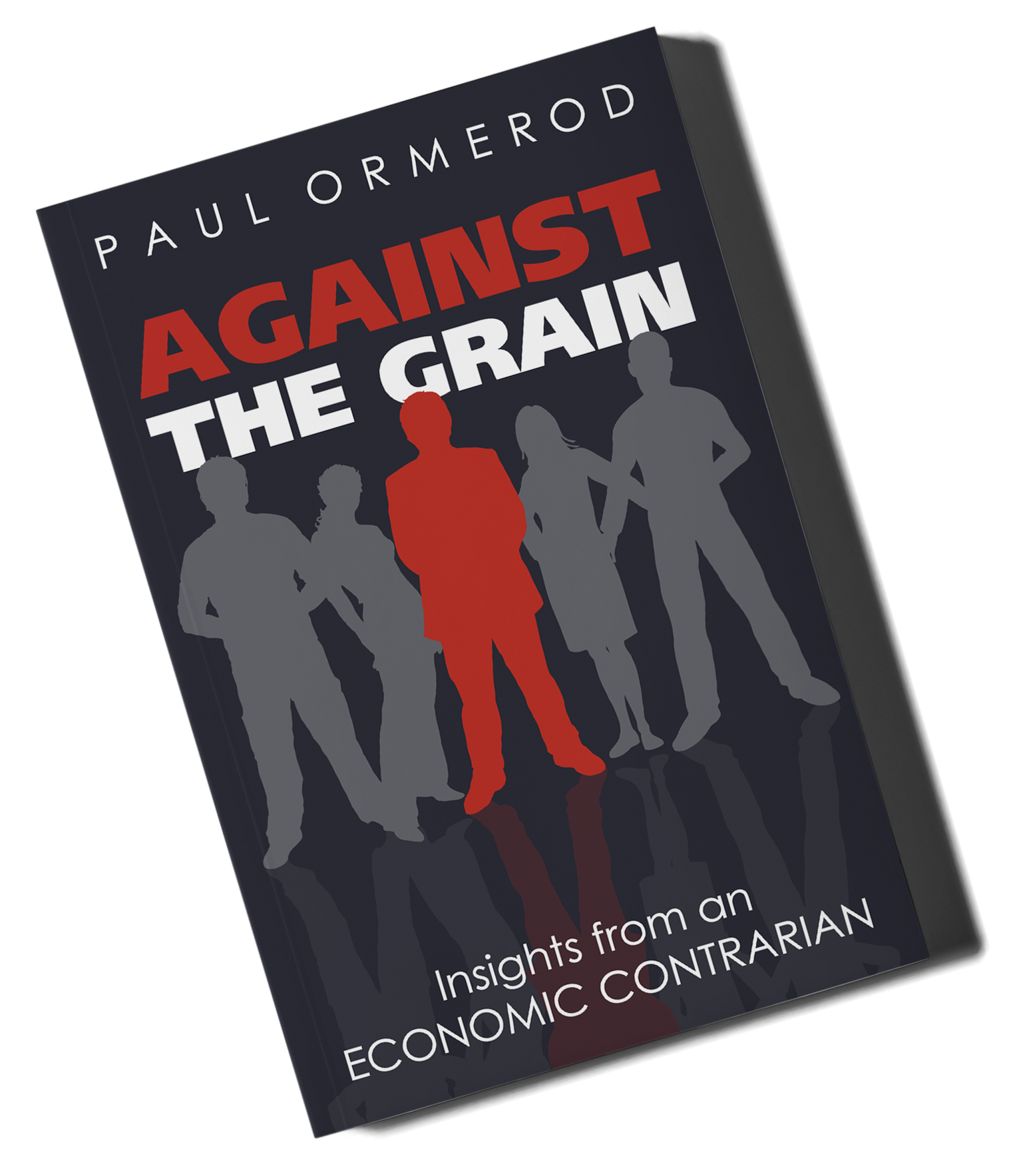
Against the Grain: Insights from an Economic Contrarian
My latest book is Against the Grain: Insights from an Economic Contrarian, published by the Institute for Economic Affairs in conjunction with City AM.
It is an organised selection of my City AM pieces. In the confines of 500 words each week, I try to shed light on a contemporary issue in political economy.
Turning a blind eye: Have policymakers ignored economists during the pandemic?
In December 2020 I published a monograph where I explain how many aspects of micro-economics – how people behave – give powerful and practical insights into the Covid crisis
Positive Linking: How Networks and Incentives Can Revolutionise the World
The Covid crisis has put networks in the spotlight. Back in 2012, I published Positive Linking: How Networks and Incentives Can Revolutionise the World. The book explores the limits of conventional economics and why it needs to embrace the power of the networks – through ‘positive linking’. Read the preface and first two chapters here.
I have also authored three other best-selling books. The Death of Economics, an attack on a particular form of economics, in 1994 and Butterfly Economics in 1998 have both been published in more than 10 languages. My third book, Why Most Things Fail, was named a US Business Book of the Year for 2006 by BusinessWeek magazine.
I wrote the Death of Economics in 1993. But a lot of what I wrote then is relevant to the current crisis. Of course things have moved on, but here is the preface, chapter 1 and a chapter on the pitfalls of economic forecasting.
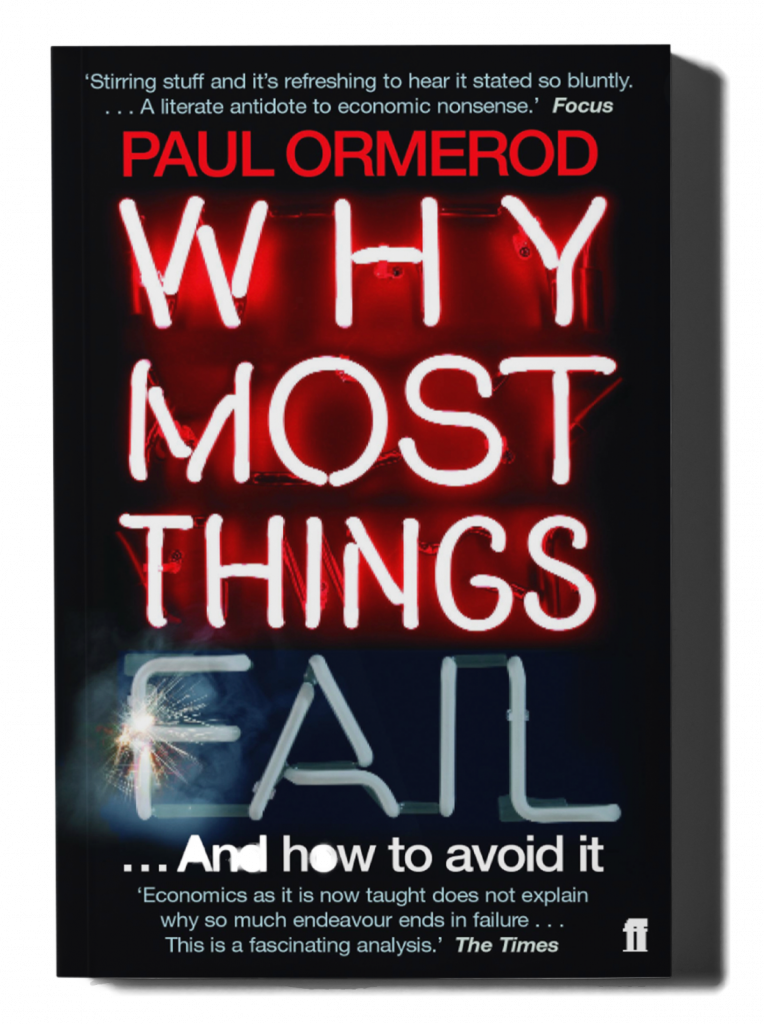
Find out More
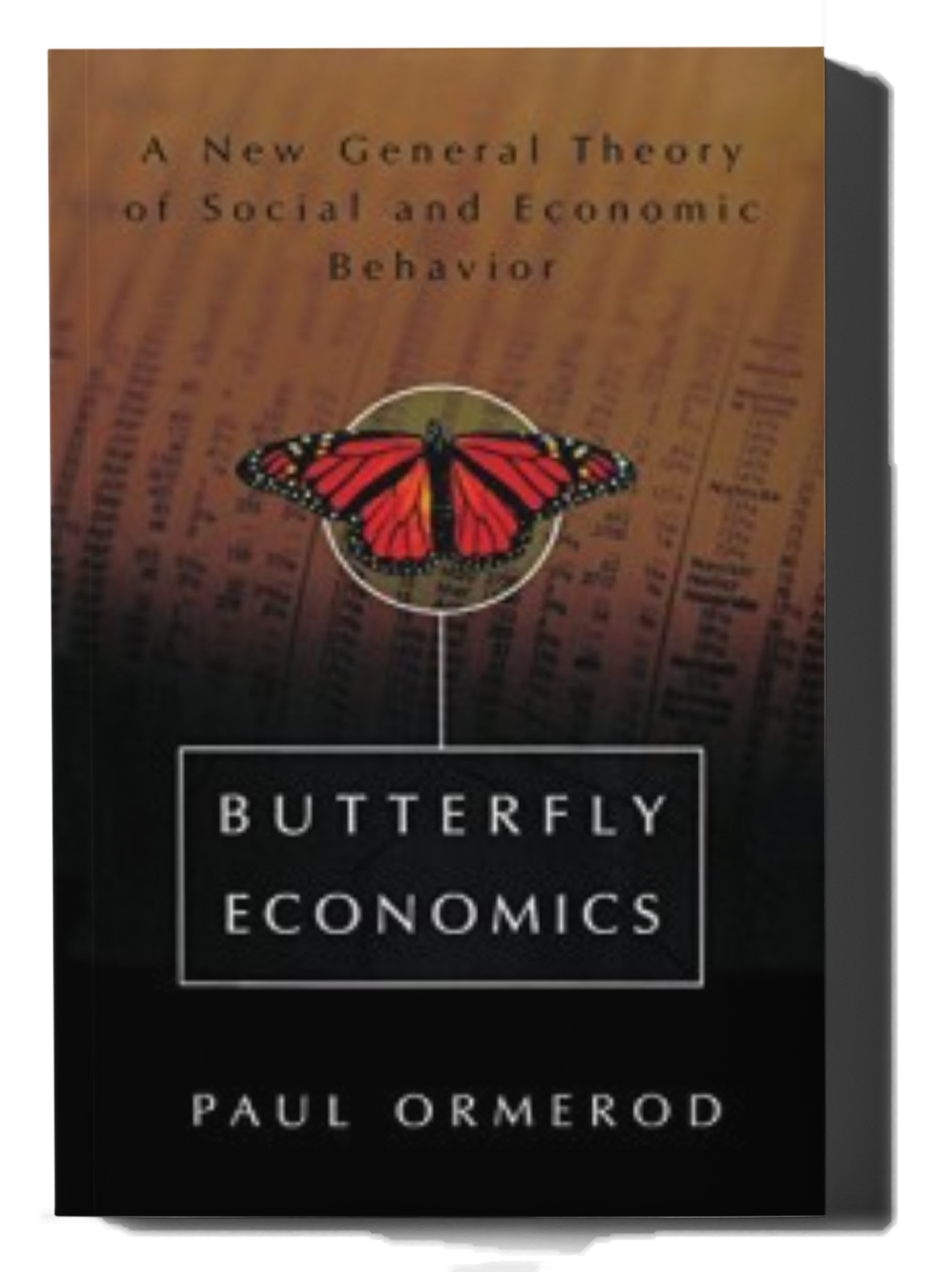
Find out More
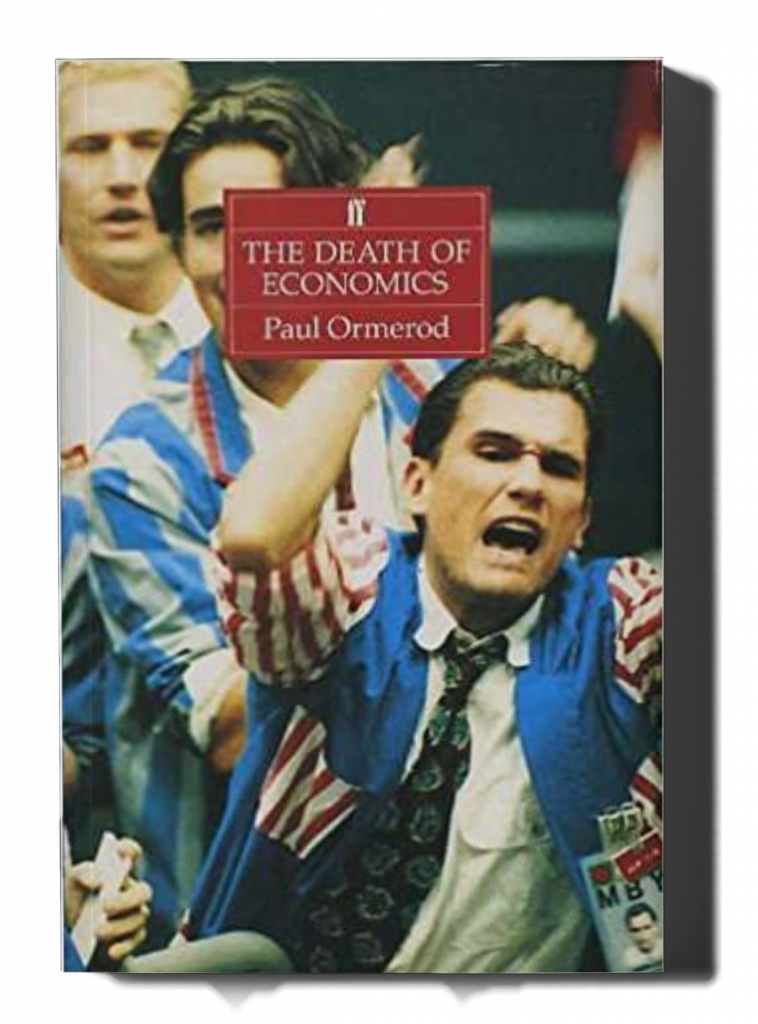
Find out More
My Research Interests
Networks
How people, firms, things are connected to each other, and how different ways in which they are connected have different implications.
Complex Systems
How the properties of systems as a whole emerge from the interactions of their component parts. These are systems in which the whole is more than the sum of the parts.
Rule of thumb
How the properties of systems as a whole emerge from the interactions of their component parts. These are systems in which the whole is more than the sum of the parts.
Big data
A combination of Big Data and new developments in machine learning algorithm open up exciting possibilities for obtaining a better understanding of how the social and economic worlds work
These topics are of course related. They draw on work from a wide range of disciplines, such as biology, economics, psychology, maths and statistical physics. Here is an article in Nature on this general topic.

